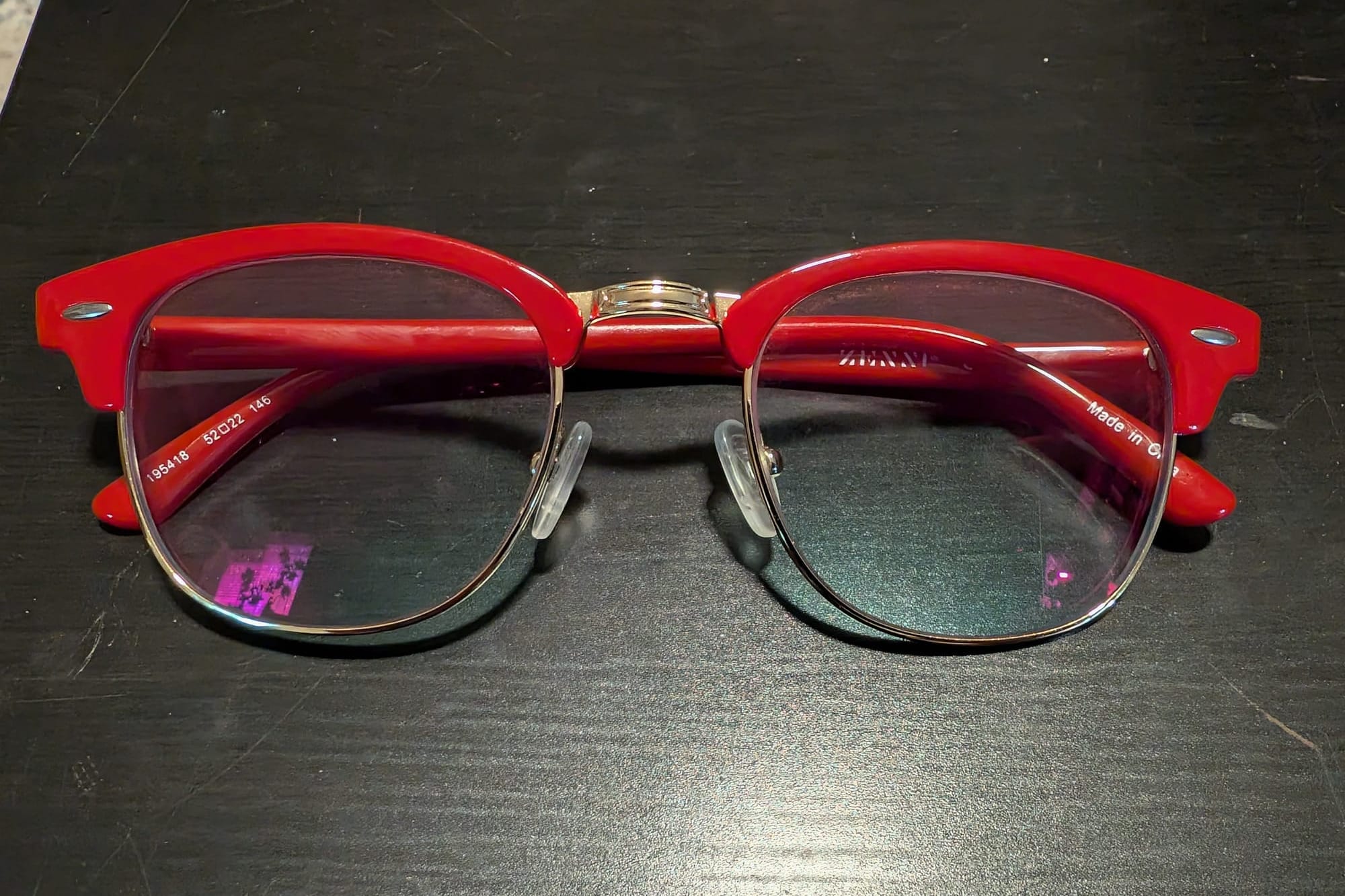Zenni, an online glasses store, is offering a new coating for its lenses that the company says will protect people from facial recognition technology. Zenni calls it ID Guard and it works by adding a pink sheen to the surface of the glasses that reflects the infrared light used by some facial recognition cameras.
Do they work? Yes, technically, according to testing conducted by 404 Media. Zenni’s ID Guard glasses block infrared light. It’s impossible to open an iPhone with FaceID while wearing them and they black out the eyes of the wearer in photos taken with infrared cameras.
However, ID Guard glasses will not at all stop some of the most common forms of facial recognition that are easy to access and abuse. If someone takes a picture of your naked face with a normal camera in broad daylight while you’re wearing them, there’s a good chance they’ll still be able to put your face through a database and get a match.
